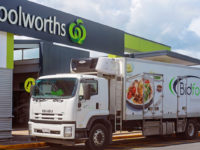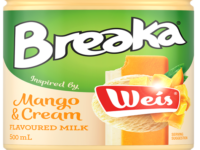The plant-based industry was already set for a strong 2020, but the Covid-19 pandemic further accelerated growth. According to Meticulous Market Research, the plant-based food market will be worth $US74.2 billion by 2027, growing at a CAGR of 11.9 per cent from 2020. While much of the innovation in plant-based foods has been spearheaded by small, more nimble players and start-ups, major industry giants are also now taking a leading role in this burgeoning sector. Plant-based products now m
Unlock indepth features,executive
interviews and quarterly magazines
The plant-based industry was already set for a strong 2020, but the Covid-19 pandemic further accelerated growth. According to Meticulous Market Research, the plant-based food market will be worth $US74.2 billion by 2027, growing at a CAGR of 11.9 per cent from 2020.While much of the innovation in plant-based foods has been spearheaded by small, more nimble players and start-ups, major industry giants are also now taking a leading role in this burgeoning sector. Plant-based products now make up around a third of Unilever’s portfolio. In November, the consumer goods giant said that it expects sales of its plant-based meat and dairy products to reach €1 billion ($US1.19 billion) over the next five to seven years.Unilever has already introduced dairy-free options of Magnum, Weis and Ben & Jerry’s ice creams as well as Hellmann’s mayonnaise and has seen growth in its plant-based meat brand Vegetarian Butcher.Magnum Dairy Free was Unilever’s first dairy free stick to launch in Australia and New Zealand and it was named “product of the year” in Woolworths. “Magnum Dairy Free brought 66 per cent of shoppers to the dairy free category, reinforcing that dairy free is not only for vegans but appeals to a wide range of consumers,” Lilian Geijsen, marketing director – Ice Cream, Unilever Australia and New Zealand, told Inside FMCG.“We have seen similar results for our dairy free options of Ben and Jerry’s – internal local data shows that people who buy dairy free, also buy our dairy Ben & Jerry’s options, demonstrating that consumers are flexing between options to suit their preferences.”Beyond Australia, Unilever is also working with biotech company Algenuity to produce plant-based foods from microalgae. The ingredient, known as Chlorella vulgaris, provides a sustainable, natural and non-GM protein source, which Unilever considers to be “a viable, climate-friendly protein alternative”.Geijsen said it’s important that the consumer goods giant is providing a range of options for consumers to suit individual dietary preferences and needs. “While we’re excited to continue expanding our plant-based options, many Aussies still love dairy and rightfully so – we have some of the best dairy in the world. In fact, in 2013, Australia became the first country to ensure its entire dairy sector was compliant with Unilever’s Sustainable Agriculture Code which means the dairy we use is 100 per cent sustainably sourced.”Future of the industry While Australia has been a bit slower out of the traps than its international counterparts, there has been a lot more local innovation and investment in recent years. While to date Australia has been mostly focused on alternative meats, there is likely to be more category disruption on the way, as the market reaches saturation point, Allen Zelden, Intrinity Global founder, explained. “I believe we will see more category diversification and competition from a variety of food businesses, especially those with distinct competitive advantages such as access to scale, and thereby pricing,” Zelden told Inside FMCG. “Currently, many privately held players dominate the Australian plant-based meat category with no brand front and centre or capturing mind and market share yet. Globally, that private dominance is slowly being disrupted by traditional meat companies (like JBS and Tyson), as well as large consumer packaged food companies (such as Nestlé and Kellogg’s), all trying to protect their position or expand into the fast-growing plant-based food category.” Zelden expects more product innovation with regard to cheese, poultry, seafood and eggs to hit the market this year.Improved retail integration The placement of plant-based food in the supermarket has been the subject of much debate since the products began to rise in popularity. Meat and dairy industry groups have been in discussions with government around the marketing of these products. Numerous studies show that positioning of vegan products alongside the original non-vegan offer helped sales. “When plant-based milks moved from UHT long-life shelf packaging to sitting in the fridge amongst other dairy milks, sales surged,” Zelden said. “Clearly, adaptation drives success.” According to data released by the Plant Based Foods Association and the Good Food Institute in July 2019, sales of plant-based milks grew 6 per cent over one year, making up 13 per cent of the entire milk category.“Integration starts with necessity and as plant-based food sales continue to skyrocket in Australia, I believe we’ll see improved collaboration between departments to align on strategy for placement, promotion and integration for the many other plant-based categories such as meat, cheese and more,” Zelden said.


















